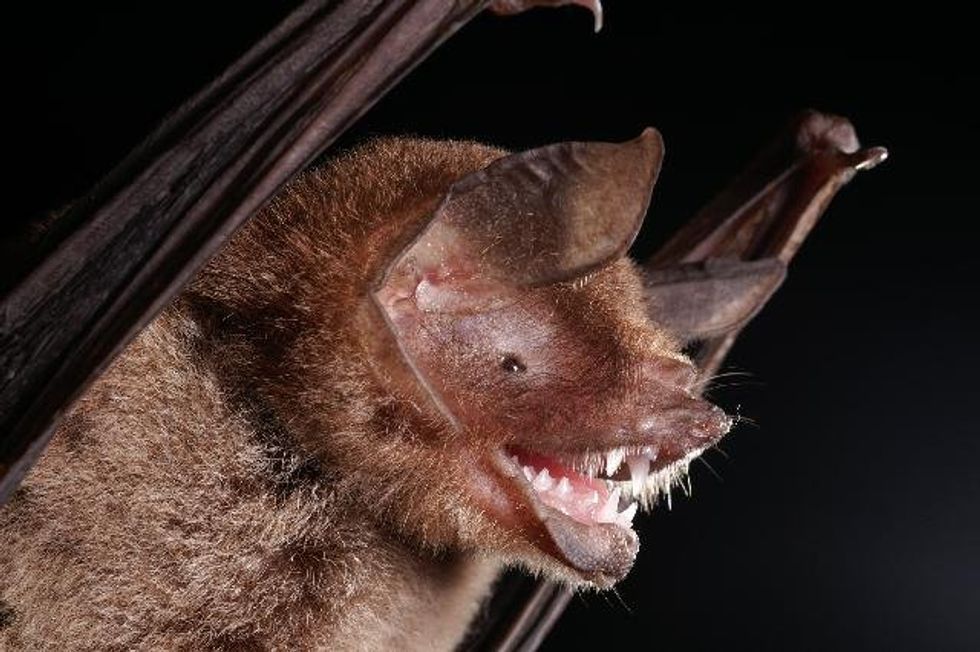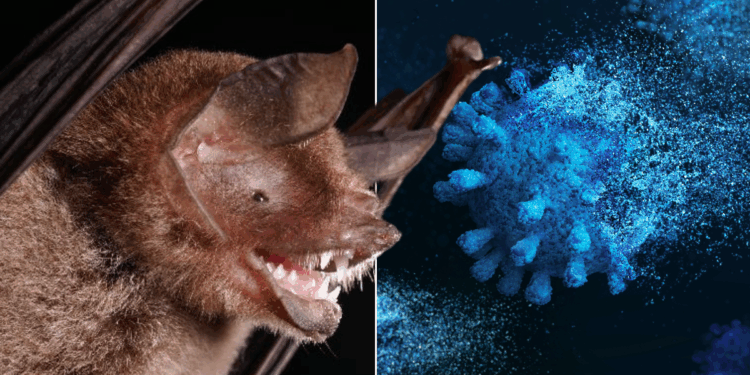A new type of coronavirus has been found in South American bats which closely resembles the one behind the Covid pandemic.
Japanese and American scientists made the discovery while researching bat populations in northern Brazil, capturing the animals and swabbing their intestines.
Inside, they found BRZ batCoV, a virus in the betacoronavirus family – which includes SARS-CoV-2, MERS and the 2003 SARS outbreak pathogen.
BRZ batCoV contains a “furin cleavage site” nearly identical to that found in SARS-CoV-2, differing by merely a single amino acid.
A furin cleavage site is the part of the virus which makes it able to infect people.
Though no human infections have yet been reported, researchers have warned of the persistent threat of viral transmission from bats to people.
Scientists warn the findings demonstrate how coronaviruses with pandemic capabilities can naturally evolve in the wild.
Dr Kosuke Takada and Dr Tokiko Watanabe from Osaka University spearheaded the research alongside colleagues from Sao Paulo University and the University of Wisconsin-Madison.

In the bat intestines, researchers found BRZ batCoV, a virus in the betacoronavirus family (file photo)
|
GETTY
Their analysis, still awaiting peer review, suggests direct bat-to-human transmission could occur without an intermediary.
The World Health Organization has said the pandemic likely began after Covid spread from a bat to a human via an intermediate animal, such as a pangolin – though more researchers have pointed to the “lab leak theory” from Wuhan instead.
The research team collected 70 bats from seven species across three Brazilian sites between May and August 2019, predating the Covid pandemic by months.
Two sampling locations were set up in Maranhao state, with another in Sao Paulo state.
 The lab leak theory was initially dismissed as a fringe conspiracy before research brought it into the mainstream | GETTY
The lab leak theory was initially dismissed as a fringe conspiracy before research brought it into the mainstream | GETTYThe virus emerged in a single specimen of Pteronotus parnellii, commonly known as Parnell’s mustached bat, a small insectivore widespread throughout South America.
Scientists believe additional infected bats likely exist in the region.
Their findings mark the first detection of a betacoronavirus like this in South American bat populations, excluding SARS-CoV-2 itself.
The researchers said the discovery “further highlights the role of bats as potential reservoirs… relevant to zoonotic emergence”.

The virus emerged in a single specimen of Pteronotus parnellii, commonly known as Parnell’s mustached bat (pictured)
|
WIKIMEDIA COMMONS
It “provides important insights into the evolutionary potential and zoonotic risk of BRZ batCoV”, they added.
The study comes amid broader concerns about coronavirus transmission risks from wildlife.
Recent European research tracked bats passing through pig farms – with scientists revealing how 15 per cent of the winged creatures carried some form of coronavirus.

















